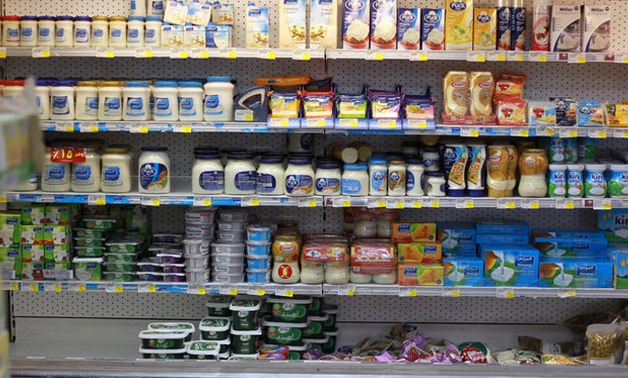
Food items are seen in a supermarket in Doha, Qatar June 7, 2017. REUTERS/Stringer
CAIRO – 8 August 2018: Egypt’s trade deficit increased 12.6 percent during May 2018, recording $3.84 billion, compared to $3.42 billion in the same month of 2017, according to the state statistics agency CAPMAS.
In April, Egypt marked a trade deficit of $3.32 billion, compared to $3.19 billion in the same month of 2017, with an increase of 4.1 percent.
In its monthly bulletin on foreign trade data, CAPMAS said that exports increased 1.4 percent to reach $2.48 billion during the month of 2018, compared to $2.44 billion during the month of 2017.
The bulletin attributed the increase of exports to the jump in the exports of some goods, such fresh fruits, increasing by 113 percent, plastic (17.2 percent),miscellaneous edible preparations (5 percent), Medicaments and Pharma goods (13.9 percent).
Meanwhile, exports of some other commodities saw a decline in May such as crude oil, which decreased by 6.2 percent, readymade clothes (6.5 percent), fertilizers (8.8 percent), and fresh oranges (0.8 percent).
CAPMAS said earlier that Egypt’s exports in the first two months of 2018 recorded $4.5 billion, compared to $4 billion in the same period of 2017.
Meanwhile, Egypt’s non petroleum exports jumped 200 percent in the first two months of 2018, reaching $64 million, compared to $21 million in the same period of 2017.
As per imports, the bulletin showed an increase of 7.9 percent to hit $6.32 billion in May of the current year, compared to $5.86 billion in May 2017.
CAPMAS ascribed this hike to the increase of imports of raw materials of iron or steel by 74.3 percent, crude oil by 25.1 percent, chemicals, organic and non-organic by 10.7 percent.
On the other hand, imports of other commodities showed a decline; such as wheat by 26.9 percent, corn by 0.5 percent, engines and generators by 36.4 percent, and copper and articles thereof by 42.1 percent.
Egypt has been witnessing a drop in imports after it floated its currency in late 2016, making Egyptian goods in foreign markets attractively cheaper while doubling the cost of importing.

Comments
Leave a Comment